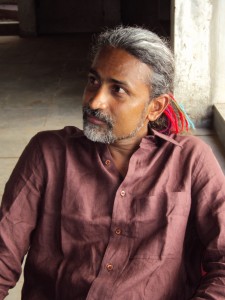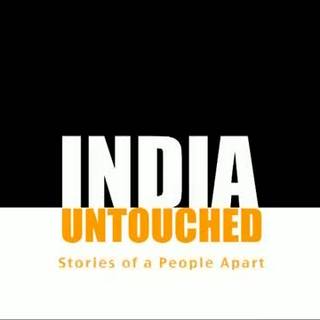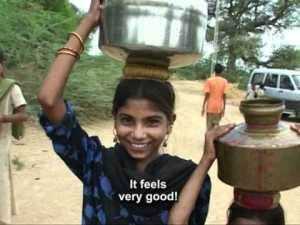We Lack Courage and Humour to Cast Out Caste: Stalin

 India Untouched: Stories of a People Apart is a 110 minutes documentary, released in 2007, about the caste-untouchability in India. The director of the film, Stalin K, travelled in eight States and covered all aspects of untouchability as practiced in India’s major religions; he spent four years on this project. On a screening tour to Kerala, he talked to MOHAMMED NOUSHAD. Excerpts.
India Untouched: Stories of a People Apart is a 110 minutes documentary, released in 2007, about the caste-untouchability in India. The director of the film, Stalin K, travelled in eight States and covered all aspects of untouchability as practiced in India’s major religions; he spent four years on this project. On a screening tour to Kerala, he talked to MOHAMMED NOUSHAD. Excerpts.
Why did you select this topic of untouchability to make a documentary?
In 1998, I did a film titled Lesser Humans. It was on the Bhangi caste, the scavengers in Gujarat. I traveled across India to screen this movie and mostly I got positive response. But some people started telling that this system of discrimination no longer exist in the country today. They simply denied the still prevailing caste exploitations. I wanted to expose this denial and started thinking of doing this documentary. Initially it was not a big project. But when I researched the topic, I felt the need to explore into different states in India, and into different religions in India, too.
Did you have any criterion to select those eight states in a documentary on Untouchability, which is otherwise prevalent in almost all states in India, as part of the caste system?
There are places in India where the caste hierarchy and untouchability is practiced as it is written by Manu, in the same atrocious and impudent style, like in rural Bihar. But in other places, the forms of untouchability have been changed. My film shows that the notion of untouchability still operates in India. I shot the film in Punjab, Delhi, Uttar Pradesh, Bihar, Gujarat, Andra Pradesh, Tamil Nadu and Kerala. Caste is a product of Hindu religion and I wanted to get the scholarly response from the Brahmin priests. So, I went to Varanasi; Bihar is infamous for caste-based violence and atrocities against Dalits and there are a lot of Dalit Muslims. Delhi was chosen as the capital of India. I have been in Gujarat for years and naturally shot there too. In Punjab, I wanted to show how the Sikh community practices untouchability. I found in states like Kerala, which is supposed among the most progressive, the caste-oriented mindset still operates.
Your film interestingly doesn’t show any social scientist or Dalit political figure talking on the issue or solutions. Was it deliberate?
I wanted to highlight the people’s sufferings, their struggle, their life. And it is a very big topic and you have to divide your time for different religions, different places etc. I wanted to emphasis the angle of the people who suffer. My politics is that among the poor also, there are intellectuals. In this film, I would be interested to interview Mayawati, if she narrated her experience as a Dalit. About Dalit intellectualism and politics, someone has to make another film, it is a very good subject.
Your film shows how the Communist party in Kerala uses Dalits merely as a labour force. Sangh Parivar also does the same in North India, especially Gujarat. But, you seemed to have missed it.
Here, what I wanted to expose was, in spite of claiming that they are progressive, the left parties, even in Kerala, practice untouchability. It is true that both the right wing and the left wing treat Dalits as mere labour force. I preferred to expose how the Communist party behaves here. If Kerala’s Communist party is treating Dalits in such a way you can imagine what the right-wing would be doing elsewhere. The Sangh Parivar does not claim that they are progressive. But the left does. I know RSS and VHP are continuously brainwashing a lot of Dalits. There are “Dalits” who believe that Dr. Ambedkar was one of the founders of Vishwa Hindu Parishat. In my film, I asked a Dalit Muslim activist, about the Muslims who joined BJP. The answer is, they are all from “forward castes” of Muslims, like Naqwis, Syeds and Khans.
Your film is against caste and its oppressive practices. But, the end credits of the film, shows many caste surnames.
(Laughs) I am glad you noticed it. I wanted this reaction. Caste feeling is very deep-rooted in our mindset. I didn’t use my caste surname. But I can’t insist it on my colleagues. To drop caste surname is only a step, not an end.
 In the end of the film, you encourage Dalit boys and girls in a Gujarati village to draw water from a public well which is prohibited to them. They eventually do so. What do you suggest?
In the end of the film, you encourage Dalit boys and girls in a Gujarati village to draw water from a public well which is prohibited to them. They eventually do so. What do you suggest?
Any social change is the product of courage. Fear lies beneath every issue of inequality; the fear of being equal or being unequal. The line between fear and respect is very thin. It needs a lot of courage for Dalits to shout at the Brahmins that we are equal to you. But for the so-called higher castes, it needs double courage to say back to the Dalits that we are equal to you. The biggest courage must be shown by the “higher” caste people. I think my film addresses the so-called higher caste people, rather than Dalits.
What insight did you get during the process of making this film, about our society, our own systems of oppression?
My insight is that fundamentally we all lack humour in life. When I say I am higher than you, simply because of birth, it means I don’t have humour. Humour is a good quality of human life. The solution for this untouchability is perhaps to mix up castes, through numerous inter-caste marriages.
